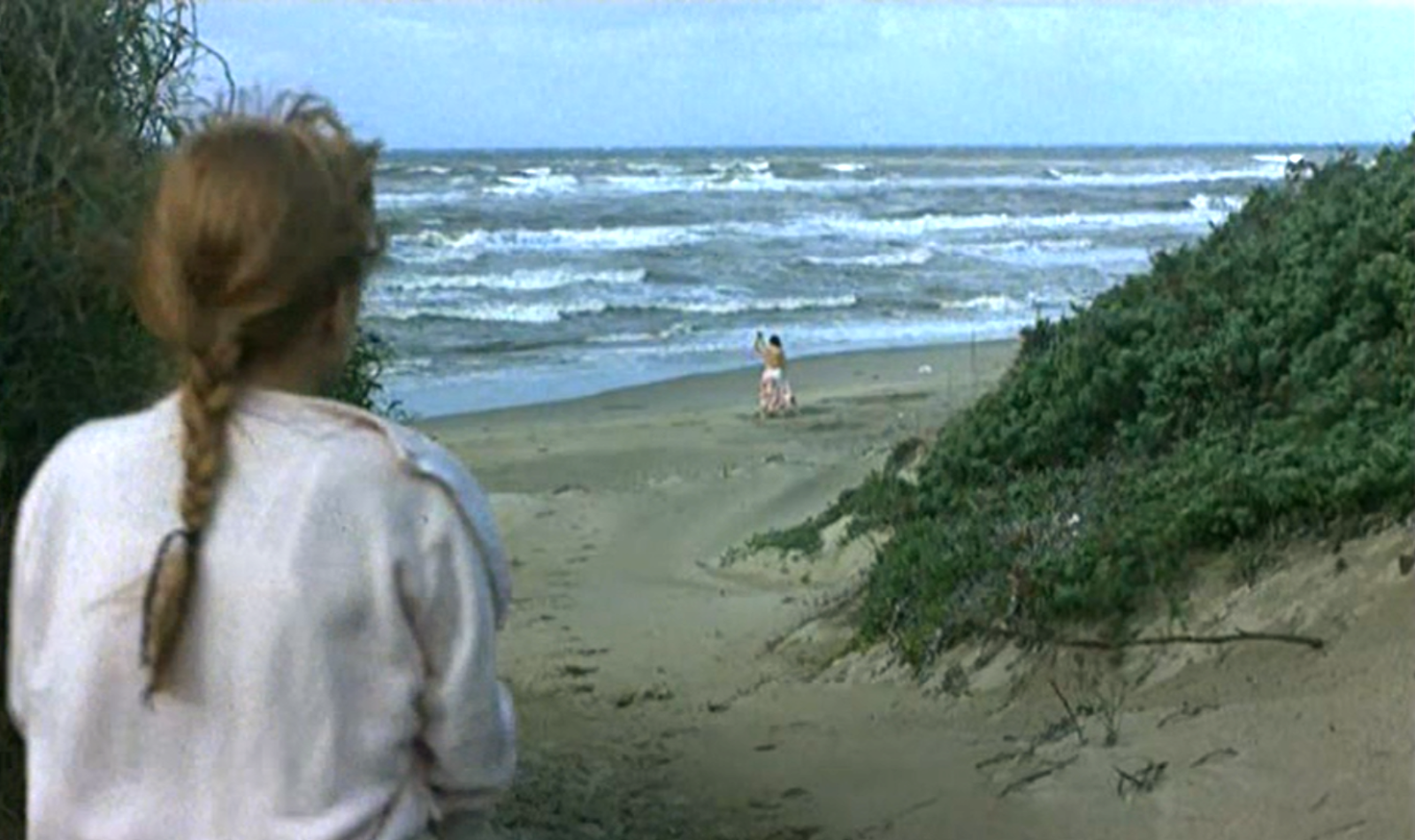the doomed
by
Douglas Messerli
Piera
Degli Esposti, Dacia Maraini, and Marco Ferreri (screenplay), Marc Ferreri
(director) Storia di Piera (The Story of Piera) / 1983
In
this highly eccentric and beautifully filmed work, director Marco Ferreri and
his writers introduce us to a family in which each individual seems at some
point or another to lose their minds or at least break all roots with
conventional behavior. The most interesting of these, and winner of the Cannes
Best Actress award at the 1983 Cannes film festival, is Eugenia (Fassbinder’s great
actor, Hanna Schygulla), who, although married to the hard-working Lorenzo (Marcello
Mastroianni), who has married her for love and remains quite blindly still in
love with her.
Eugenia might be described in several ways, as a kind of early hippie, a wild being who simply cannot be and will not be sexually contained, or a sexually obsessed woman who has no comprehension at all of how to raise her family, daughter Piera (Isabelle Huppert) and son, the latter of whom we hardly get to know, he being raised up by a conservative servant in the house.
It is Piera who serves as the focus of the film, first serving as her mother’s caretaker as she follows her about the city during behavior the literature on the film generally describes as “unbalanced.” Surely a mother fucking with abandon nearly every man she meets might be described as “unbalanced” or even emotionally unstable.
Piera, accordingly gets a stranger vision
of female sexuality as she moves from kissing contests with the local boys to
her first encounters with young males and finally into the arms of a lesbian
friend, to say nothing of the almost incestuous relations between both her
mother and father. Both seem almost blind and certainly passive about each
other’s activities, and in his job high up in the Italian Communist Party
(Partito Comunista or PC), Lorenzo is absent from home for long periods. But
even when he is home, tucked away in the rich rooms which cinematographer Ennio
Guarnieri, at times, has made to look like the interiors from a Dutch painting,
he appears nearly oblivious of his wife’s actions.
Eugenia is finally deemed so beyond the
normal that she is hospitalized and given shock therapy. And Piera escapes to
Milan where she becomes a well-known actress.
Upon a visit back home to one to Italian
city of Latina, founded in 1932 by Benito Mussolini, Piera discovers that her
father, forced to give up his job in the PC, has also been institutionalized.
She finds him in bed with another man and a small dog, an uncaring attendant
describing them as faggots. Lorenzo seems to have given up on almost on
meaning, but is heartened again to see his now successful daughter.
Soon after, her mother’s mind is so
deteriorated that she is also locked away, refusing to even allow her hair to
be cut and checked for lice. The arrival of Piera calms her just enough for a
cutting and a trip to the beach where we have seen her early in the film have
sex with one of her endless male encounters. There, she strips herself naked
and demands Piera do the same as the two embrace in a deep expression of the
love, confusion, and disappointment they have endured throughout.
This is a very loosely constructed—one
might describe it as haphazard—work that focuses instead on the constantly
shifting worlds of this doomed but fascinating family.
Los
Angeles, June 4, 2025
Reprinted
from My Queer Film blog (June 2025).






No comments:
Post a Comment